『神話なきマルクス―その生涯と著作に関する編年史研究』あらすじと感想~マルクスが何を参考にしていたかを知るのに最適!
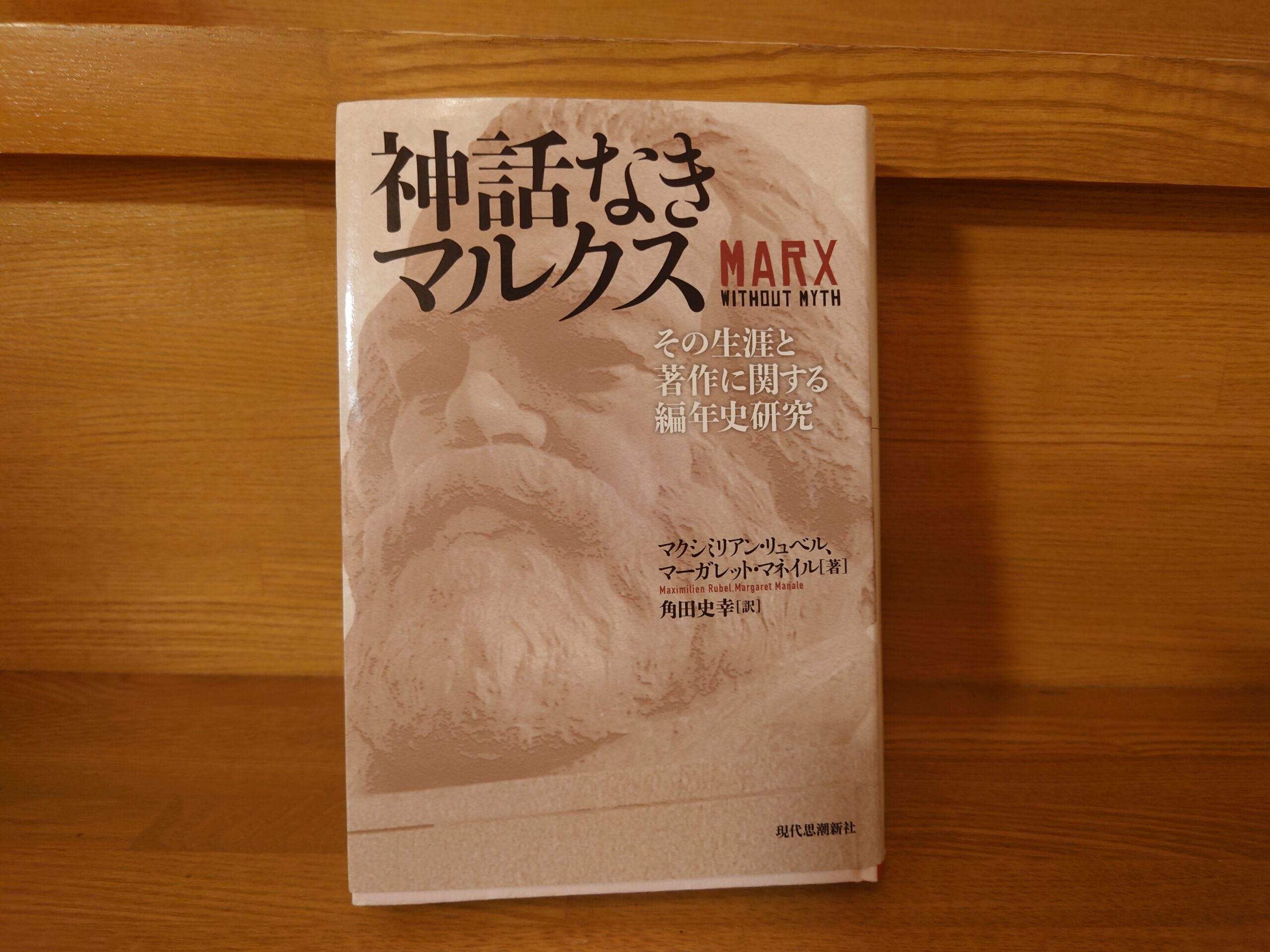
『神話なきマルクス―その生涯と著作に関する編年史研究』概要と感想~マルクスが何を参考にしていたかを知るのに最適!
今回ご紹介するのは2021年に現代思潮新社より発行されたマクシミリアン・リュベル、マーガレット・マネイル著、角田史幸訳『神話なきマルクス―その生涯と著作に関する編年史研究』です。
早速この本について見ていきましょう。
マルクスは激怒した。 「私は「マルクス主義者」ではない」 1848年革命とパリ・コミューンをはさんだ激動の19世紀。病気、貧困、記事執筆に多忙を極めながらも、「労働者の自己解放」を実現するべく、国際労働者協会を創設し、不滅の理論的成果を打ちたてたマルクスの生涯。フランスで反ナチス・レジスタンスに参加しつつ、いかなる党派からも独立し、「正統派マルクス主義」を掲げたスターリン主義と生涯にわたって戦い続けた、不世出のマルクス研究者リュベルの画期的なマルクス・クロニクルである。
Amazon商品紹介ページより
この作品は特定のイデオロギーによって神話化されたマルクスや、逆にそれに敵対する陣営からの批判によって悪魔化されたマルクスではないマルクスとは何かということを明らかにしようとする伝記となっています。
この本のありがたい点はマルクスが何に影響をうけていたのか、何を参考にどのような研究をしてきたかということが詳細に解説されているところです。
しかもそれが年代順にリスト化もされているので、マルクス研究において非常にありがたい作品となっています。私もこの作品のおかげでこれから先何を読んでいこうか参考にすることができました。
マルクスは猛烈な読書家、勉強家として有名ですが彼が何を読んでいたのかが一目瞭然なのでこれは非常に興味深かったです。
その中でも特に私が興味深く感じたのでは、マルクスがディケンズの小説を好んでいたということでした。
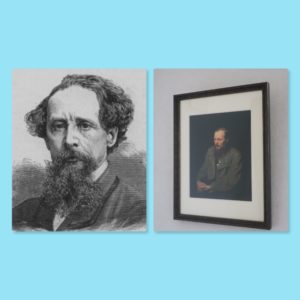
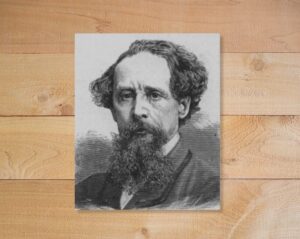
ディケンズも産業革命が進んだロンドンにおける労働者や子供の貧困に目を向けた作家でした。
特に彼の代表作『オリヴァー・ツイスト』では貧困の悲惨さを描き、それによってイギリス中から待遇改善の動きが実際に起こったほど彼の作品は社会に影響を与えたのでした。
筆の力で世の中の貧困と戦い、実際に社会を動かしたディケンズにマルクスは惹かれたのかもしれません。
この本について訳者のあとがきでは次のように述べられています。
本書は、 Maximilien Rubel and Margaret Manale, Marx Without Myth:A Chronological study of his Iife and work: Basil Blackwell:Oxford, 1975 の全訳である。
英語原文の題名がMarx Without Myth とある通り、本書の目的は、マルクス本人や彼の思想の神秘化、神話化を暴き、それによって「神話なき」(神話を剝ぎ取った)マルクスの実像を提示することにある。しかし本書、特に著者リュベルの意図はそれだけに限らない。本書の意図は、もっと広く、世界の事物が、人間の社会的幻想や意識、例えば権力意識や差別意識などによって極端に神秘化・神話化される事態を、徹底的に批判するところにある。
現代思潮新社、マクシミリアン・リュベル、マーガレット・マネイル著、角田史幸訳『神話なきマルクス―その生涯と著作に関する編年史研究』P535
せっかくですので著者自身の言葉も聞いていきましょう。著者の立場が非常にわかりやすくなりますので少し長くなりますが引用します。
存命中は黙殺されていたカール・マルクス。彼は没後には英雄として神話の対象となって、さらなる被害を蒙った。この神話化こそが、同時代の人々がしめし合わせたかのような黙殺以上に、マルクスの生涯の業績に傷をつけた。
イデオロギー的神話化を初めて法則的に理解したマルクス自身が、自分が作り出した学派の人たちによって神話化の標的にされたのだ。滑稽化されることもあれば、まるで知的な怪物だったかのように勇ましく誇張されることもあり、マルクスの性格は常に戯画化されている。
マルクスの言葉は、全知なる神託の預言的発言のように解釈され、自らの責任を逃れようとする現代の社会運動の指導者層の、善行も悪行をも正当化するために利用されている。
労働者の解放闘争のための知的手段としてマルクスが企図した学説は、物質的な搾取と精神的な奴隷制を正当化する政治的イデオロギーにまで変質させられている。プロレタリアート独裁という概念は、とりわけ曲解され、圧倒的な多数者のための圧倒的な多数者による民主主義的な統治としてマルクスが想定したにも拘わらず、社会集団(もしくは階級)同士の搾取と抑圧、そして基本的な人権を破棄することまでをも正当化するイデオロギーになってしまっている。
今日の世の中では、封建的かつ前資本主義社会にもあったような非人道的な社会関係が、「マルクス主義的社会主義」という名で正当化されさえしている。最高の倫理的原理であった階級闘争によるプロレタリアの自己解放が、新エリートたち―「マルクス主義的」政治家―の行動規範に変えられた。そうすることによって、マルクスは完全に神話化され、マルクスが執筆活動をしたり、政治的な運動で応援しようとした大衆の知的・道徳的成長も妨げられてしまった。
全人類の破滅を招くような現代の科学技術を手に入れて、この新エリートたちは「帝国主義国家」のパートナーにもなり、ライバルにもなり、その共通した目標は、お互いの支配権の維持と拡大である。現代史はもはや、『コミュニスト・マニフェスト』(『共産党宣言』)が説いたような階級闘争の歴史ではなく、「倫理的」「人間的」「宗教的」とされている価値観を守るために、計画し実行される世界規模での闘争の歴史なのである。
マルクスの遺産がこのように精神的にも理論的にも曲解されているため、この年代記〔本書〕は神話無きマルクスを擁護することを目的としている。主に、革命的な思想家・闘士だった人間マルクスを描写することによって、世界に広まった神話や勘違いに対して反論する。物質的には貧しくても精神面においてはもっとも豊かになる可能性を持つ一部の社会集団の意識的活動がもたらす全人類の解放、これこそが唯一の目標だったことを表すマルクスの人生のエピソードや出来事を最重要点としたい。マルクスの中心的な動機を正確に描くためには、何に焦点を合わせるべきかを慎重に選ぶことの必要性を感じ、他のコンテキストなら大切であろう事柄でも、ここではあえて触れないか、もしくは省略したこともある。
現代思潮新社、マクシミリアン・リュベル、マーガレット・マネイル著、角田史幸訳『神話なきマルクス―その生涯と著作に関する編年史研究』P8-9
※適宜改行しました
そして著者は以下のようにまとめています。
この年代記〔本書〕の意図は、いずれ書かれるであろうマルクスの決定的な伝記の代わりとなることにあるのではなく、その伝記の土台を作ること、そして『資本論』を執筆した作者の伝説的イメージを破壊することにある。通常は伝記に書かれるような逸話に富んだ詳細がないことに不満を感じるとするならば、それはあえて書き入れなかったことを、読者は念頭に置いていただきたい。それによってわれわれは実際に選択した事柄、特にマルクスの作品や文通に集中することができたのだ。
マルクスの人生を六つの時代に分け、それぞれを紹介しながら当時の歴史事件に軽く触れている。一八六七年以前に執筆した作品やエンゲルスらに送った(時には非常に細かい内容の)手紙をもとに、マルクスの経済理論や社会分析への基本的な知的貢献を概説することによって、『資本論』からの直接引用を避けることができた。本書は、悩み多き激しい人生とその目標と意図、そして行動の動機についてのマルクス自身の発言フォーラムであり、簡潔であってもマルクスの社会理論の背後にある人間的・科学的な根拠を伝えようとしている。経済諸関係についての論理的・批判的把握と、それとは不可分の現代社会において絶え間なく生じる革命的社会問題の理論的・実践的な解明という、マルクス理論の二重性を強調している。
労働者階級の革命的成熟は、マルクスが願望し想定した通りに資本制システムの拡大に追い付いていないにしても、その資本制システムが衰退するにつれて残される選択肢は徐々に深刻になってきている。人類は、理性に基づいた社会秩序を世界規模で受け入れなければ、少しずつ自己破滅をしながら野蛮なカオス状態に陥っていく。その致命的なジレンマに対する責任はわれわれ全員にある。過去にあったような非人道的行為を防ぎ、人類を存続させ、普遍的な自己決定が可能になる時代を実現させる合理的ユートピアを作り出せるのは、大多数の人びとの個々の決断のみである。
現代思潮新社、マクシミリアン・リュベル、マーガレット・マネイル著、角田史幸訳『神話なきマルクス―その生涯と著作に関する編年史研究』P13-14
※一部改行しました
この最後の箇所は特に重要であると思います。
「人類は、理性に基づいた社会秩序を世界規模で受け入れなければ、少しずつ自己破滅をしながら野蛮なカオス状態に陥っていく。」
「人類を存続させ、普遍的な自己決定が可能になる時代を実現させる合理的ユートピアを作り出」す。
著者はマルクス主義をそのようなものと考えているようです。
そしてマルクス主義がこれまで失敗したのは、それを利用し神話化したせいであり、真のマルクスはそうしたものとは全く異なり、今こそ現代においてマルクスは必要であるという立場であると見れます。
ここで著者のプロフィールも見ていきましょう。
マクシミリアン・リュベル
1905年オーストリア=ハンガリー帝国領チェルヴィッツ生まれ。ドイツ占領下のフランスでレジスタンスに身を投じて戦い、そのただなかでマルクス研究を開始。戦後、フランス国立科学研究センターで研究の傍ら、『マルクス学研究』の編集にあたる。1996年パリにて死去。マーガレット・マネイル
現代思潮新社、マクシミリアン・リュベル、マーガレット・マネイル著、角田史幸訳『神話なきマルクス―その生涯と著作に関する編年史研究』より
リュベル教授のアシスタント、ソルボンヌでマルクス研究に従事
マクシミリアン・リュベルのプロフィールを見て意外に思ったのですが、彼は1996年に亡くなっています。この本自体は1976年に出版されたものを2021年に全訳したものということで、最新のマルクス論というわけではなさそうですが、今こうして日本で出版されたということはマルクス研究においてこのタイミングは有益であると判断されたのかもしれません。
最近日本ではマルクス関連の本がよく売れているようです。経済不況とコロナ禍によってマルクスが出てきやすい土壌になっていると思われます。
そうして出てきたマルクス解説のほとんどが、「これまでのマルクスは間違って理解されていた。真のマルクス像は全く違う。今こそ真のマルクス思想が世界を救う」という流れです。
この本もその系譜のひとつと言うことができると思います。
『神話なきマルクス―その生涯と著作に関する編年史研究』というタイトル通り、この本は伝記というよりは編年史となっています。
物語的な伝記の面白さを求める方には正直あまりおすすめできません。それは著者自身も述べていることです。私も読んでいて、その辺がちょっと苦しかったのですが、マルクスが何を参考にして自らの思想を練っていったのかを知るには非常に有益な作品となっています。
マルクスをより深く研究するための参考書としてこの本はおすすめしたいと思います。
以上、「『神話なきマルクス―その生涯と著作に関する編年史研究』マルクスが何を参考にしていたかを知るのに最適!」でした。
Amazon商品ページはこちら↓
次の記事はこちら
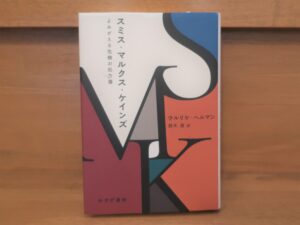
前の記事はこちら
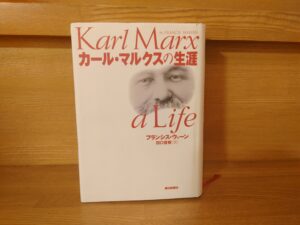
関連記事
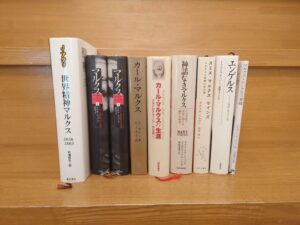
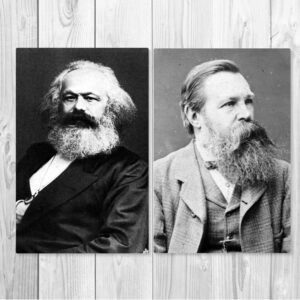
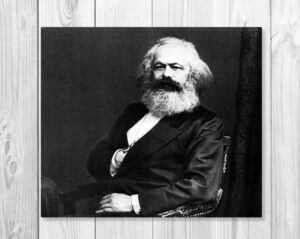

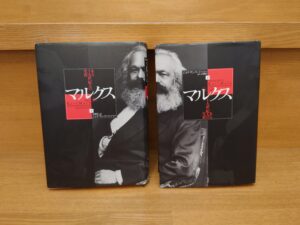
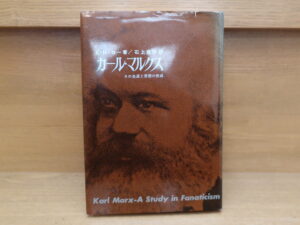
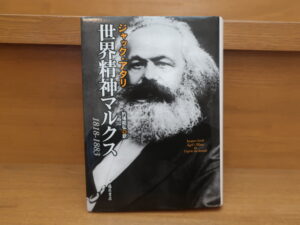

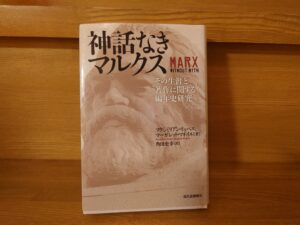
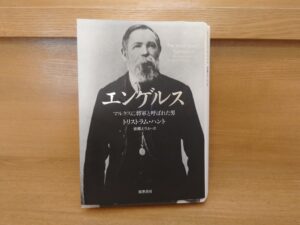
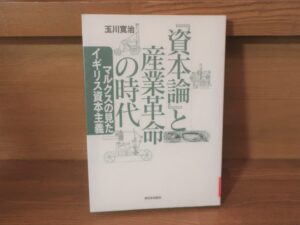
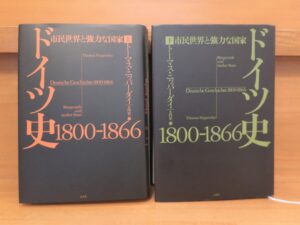
コメント